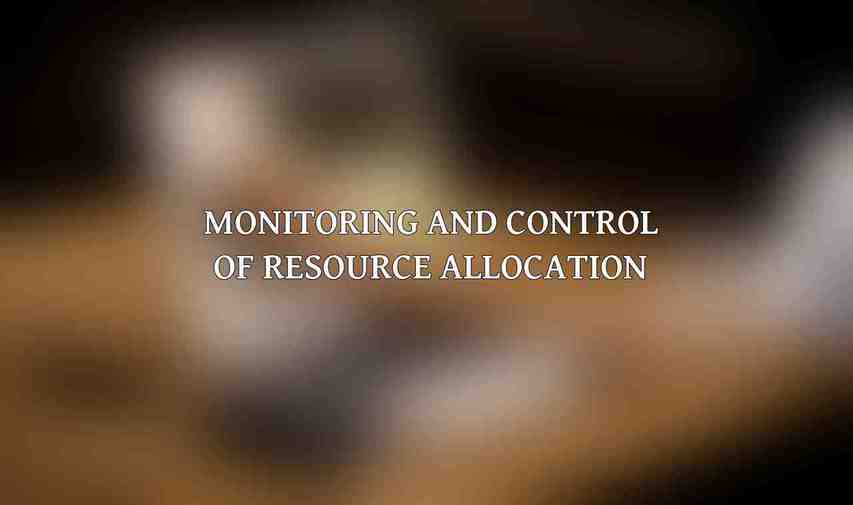Resource allocation is the process of assigning and scheduling available resources efficiently to achieve project objectives. In project management, the effective distribution of resources is crucial for ensuring the successful completion of projects within constraints like time, budget, and scope. Challenges in resource allocation can arise due to competing priorities, unexpected changes, or limited availability of resources. You can find more information on Talent Optimization Strategies for High-Performing Project Teams
Types of Resources
In project management, resources can be classified into three main categories:
A. Human Resources1. Skills and experience: The expertise and capabilities of team members play a significant role in resource allocation.2. Availability: Ensuring that the right people are available at the right time is essential for successful project delivery.
B. Physical Resources1. Equipment: Tools, machinery, and technology required for project activities.2. Materials: The raw materials or products needed to complete project tasks.
C. Financial Resources1. Budget: The allocation of funds for various project-related expenses.2. Funding sources: Managing financial resources from different stakeholders or sources.
Resource Allocation Strategies
Effective resource allocation strategies are vital for optimizing project performance. Some key strategies include: Find more on Top Resource Management Techniques for Successful Projects
A. Leveling1. Leveling aims to smooth out resource allocation over the project duration to prevent resource overloads or underutilization.2. Advantages include improved resource utilization, while disadvantages may involve potential delays in project delivery. You can find more information on Mastering Time Management for Successful Project Delivery
B. Smoothing1. Smoothing focuses on resolving resource conflicts by adjusting project activities without changing the project schedule.2. Advantages include flexibility, but potential disadvantages may include increased project complexity.
C. Prioritization1. Prioritization involves ranking project tasks based on their importance or urgency to guide resource allocation decisions.2. Types of prioritization methods include weighted scoring and MoSCoW analysis.
D. Bottleneck Analysis1. Bottleneck analysis helps identify constraints or bottlenecks that limit project progress.2. Methods for identifying bottlenecks include analyzing critical paths and resource dependencies.
Considerations for Effective Resource Allocation

Several factors must be considered when allocating resources in project management:
A. Project Scope and ObjectivesB. Project ScheduleC. Resource AvailabilityD. Resource Dependencies
Tools and Techniques for Resource Allocation
Utilizing appropriate tools and techniques can enhance resource allocation efficiency:
A. Resource Allocation Software1. Resource allocation software automates and streamlines the allocation process, improving accuracy and visibility.B. Gantt Charts1. Gantt charts visually represent project tasks and resource allocation over time, aiding in scheduling and coordination.C. Resource Histograms1. Resource histograms illustrate resource demand and availability, facilitating resource balancing and optimization.D. Critical Path Analysis1. Critical path analysis identifies the sequence of tasks critical for project completion, assisting in resource allocation priority setting.
Managing Resource Conflicts
Conflicts over resources can occur during project execution, requiring effective resolution strategies:
A. Causes of Resource ConflictsB. Strategies for Resolving Resource Conflicts1. Negotiation2. Temporary Assignments3. Outsourcing
Monitoring and Control of Resource Allocation

Continuous monitoring and control are essential to track resource usage, anticipate future needs, and make necessary adjustments:
A. Tracking Resource UsageB. Forecasting Future Resource NeedsC. Making Adjustments Based on Progress
Best Practices for Effective Resource Allocation
To enhance resource allocation effectiveness, consider implementing these best practices:
A. Involve Stakeholders in Decision-MakingB. Communicate Resource Allocation Plans ClearlyC. Monitor and Adjust RegularlyD. Learn from Past Experiences
Case Studies
Examining successful resource allocation strategies from real-world projects can provide valuable insights and learnings for future endeavors:
A. Examples of Successful Resource Allocation StrategiesB. Lessons Learned from Project Management Case Studies
effective resource allocation is pivotal for project success, and employing the right strategies and tools can contribute significantly to achieving project goals. Continuous monitoring, flexibility in resource management, and learning from past experiences are key elements in optimizing resource allocation practices for project management excellence. By prioritizing resource allocation, project managers can navigate challenges and deliver successful outcomes in their projects.
Frequently Asked Questions
What is resource allocation in project management?
Resource allocation in project management refers to the process of assigning and distributing resources such as time, money, people, and materials to different tasks and activities within a project.
Why is resource allocation important in project management?
Resource allocation is crucial in project management because it helps ensure that resources are used efficiently, project goals are met on time and within budget, and potential bottlenecks are identified and addressed proactively.
What are some common challenges in resource allocation?
Common challenges in resource allocation include a lack of visibility into resource availability, conflicting priorities, changing project requirements, and competition for scarce resources among different projects.
What are some effective strategies for resource allocation in project management?
Some effective strategies for resource allocation in project management include creating a detailed resource plan, prioritizing tasks based on importance and deadlines, monitoring resource usage and availability in real-time, and maintaining open communication with team members and stakeholders.
How can project managers optimize resource allocation to improve project outcomes?
Project managers can optimize resource allocation by identifying and resolving resource conflicts proactively, adjusting resource assignments as project requirements change, leveraging technology tools such as resource management software, and conducting regular performance reviews to identify areas for improvement.

